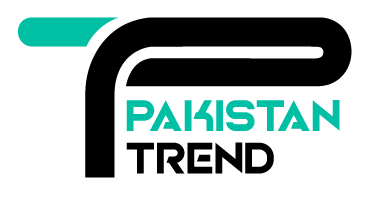The Ministry of IT and Telecommunication (MoITT) is ready to release a policy directive in the coming days, aimed at increasing smartphone accessibility for all citizens by introducing affordable installment options. Caretaker Minister of IT and Telecom, Dr. Umar Saif, made this announcement during a high-level meeting on Thursday.
The meeting, attended by representatives from the Pakistan Telecommunication Authority (PTA), Cellular Operators, and GSMA, saw the minister outlining MoITT’s plans to collaborate with PTA in formulating comprehensive policy directives for a smartphone installment program.
Dr. Umar Saif emphasized the significance of fostering innovative partnerships between cellular operators, investment firms, and banks. These collaborations are envisioned to pave the way for the launch of innovative packages, making it feasible for the general public to access smartphones through budget-friendly installment plans.
Inching closer to installments-based smartphones for Pakistan … https://t.co/pIBXqyZxFH
— Umar Saif (@umarsaif) November 2, 2023
The minister elaborated that extensive consultations with a diverse range of stakeholders were in their final stages, and the forthcoming policy directives would be based on their valuable input.
This initiative is designed to establish a framework that enables cellular operators, banks, and investment firms to offer smartphones through installment plans, ensuring their operations remain financially viable while extending their reach to the general public.
Furthermore, Dr. Umar Saif outlined the repercussions for individuals who default on their installment payments. Mobile devices registered to such defaulters will be subject to blocking, rendering them inoperable.
Moreover, there is ongoing consideration of the proposal to block the national identity cards of defaulters, although a final decision has yet to be reached.
The task of blocking the SIM cards of defaulters may fall to the cellular companies providing the mobile phones, pending a review of legal aspects. An official announcement regarding this is expected soon.
The minister underscored the urgency for cellular operators, investment companies, and banks to introduce attractive installment packages for smartphones. The collective decision to block phones of defaulters aims to discourage non-payment and foster greater smartphone adoption.
It’s important to note that this surge in smartphone demand is anticipated to benefit the mobile phone manufacturing industry, strengthen the country’s economy, and create fresh opportunities for cellular operators to expand their services to remote regions.

Dr. Umar Saif acknowledged the challenges inherent in significant decisions but emphasized the importance of policies that promote digital inclusion and economic growth.
Worth mentioning is the fact that out of Pakistan’s 190 million mobile users, a significant 48% are still using outdated 2G mobile phones. Under the proposed plan, mobile operators will offer various packages to encourage the transition of these 2G users into smartphone users.
One such example is Mobilink Jazz, which has already introduced three to six-month offers for middle and low-income individuals, enabling them to acquire smartphones. It is reported that the Ministry of IT&T, in collaboration with the Pakistan Telecommunication Authority (PTA), is actively developing a mechanism to block the International Mobile Equipment Identity (IMEI) numbers of mobile phone users who fail to make their installment payments on time.
The Ministry of IT&T expects that this approach will not only encourage the assembly of new phones within Pakistan but also lead to increased tax collection by the Federal Board of Revenue (FBR).



